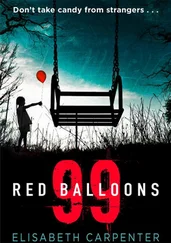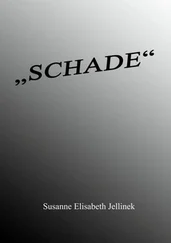“It hurts so much,” I sobbed into my sister’s hair. “Everything hurts so much. I’m crashing to the ground. Every bone in my body is breaking.”
We let go of each other quickly, my sister and I. We weren’t used to that kind of intimacy; it made us uncomfortable.
From then on, I slept at home most nights. I made myself watch television and read the paper, tried to pretend that this was me, that this was my life. Outside, summer was in full bloom, but I took no part in it. There is a particular kind of white-hot anguish, a daylight anguish that can scorch you, make you thin and transparent like rice paper. That’s how I felt that summer. Seeing a wasp could mortify me to the point that I ran all the way home and crawled into bed struggling with the white-hot feeling. I scarcely had the courage to live.
Some days I couldn’t make myself visit the boy. I’d remain sitting in the kitchen or the hallway for hours, incapable of moving. Sometimes I called my sister.
“I can’t make myself visit him,” I whispered into the phone.
Then she’d come over and accompany me to the hospital. Or take me to the bus stop. If she set me in motion, I could keep going on my own.
But there were other obstacles, obstacles that had to be overcome. There was the very smell of the hospital. You had to submit to it. When I’d lived there, I must have gotten used to it; I guess I’d reeked of it myself. But now, the distinctive odor bothered me. It filled me with its order and regime. It’s a very particular smell, and you can sense it most inside the bathrooms, an odd brew of cleanliness and decay, topped off with rubber and ointments. Shivering, I’d allow myself to be filled with it once more, even though I’d rather have escaped. But I’d make it through the corridors and up to the ward. Stopping at the nurses’ reception desk, I could already hear the boy crying in his room, his tired, cracked cries mixing with the music box endlessly chiming “London Bridge Is Falling Down.” I’d take a deep breath, and go in to see the nurse, if she was there.
“Did he have a — ”
“Oh no, everything’s fine.”
I didn’t want to utter the word seizure. It was one of those harmful words no one was allowed to say. The nurses knew about it too, they made deliberate and complex efforts to avoid saying it. But the doctors used the word dispassionately, as if they were trying to normalize it.
“We can’t say for sure if he’s been damaged by the latest series of seizures,” they’d say.
What to them was simply a field of knowledge was for me nothing but suffering: penetrating anxiety, and deep terror. Most of the time it seemed as if they couldn’t see the great difference between them and me: to me, the boy’s condition would never be an interesting subject; it was a nightmare.
Most difficult was his crying. It never ceased; it was a saw slowly cutting through time. It was sawing through the bones, every bone in his body, and every bone in mine. The seconds got stuck in its path, bone shards, sharp as spears. His crying was hoarse but loud, somehow finding its strength, its source, somewhere inside his small infant body.
In the beginning, when I asked if he was in pain, no one could give me a straight answer. They said he wasn’t supposed to be in pain. That there was no obvious reason he would be in pain. That they’d done everything they could so he wouldn’t feel any pain.
“If that’s the case, why is he crying?” I asked.
But with time, I learned not to ask. I learned to sit next to his crying, to watch over it and hold his tormented little face under my gaze so that he’d be sure to know I’d never leave him, ever. I wanted his pain to become my pain, wanted to share this unbearable, difficult, unfair thing with him, it was to become my fate too; I’d make room for it in my life.
“I think I know why he’s crying,” I said once, during morning rounds.
“Is that so,” the ward doctor said, turning away from his colleagues for a moment to look at me.
“I think he’s mourning his life,” I said. “He’s crying out of grief.”
An awkward silence followed, and I immediately regretted what I’d said.
“Well, that’s possible,” the doctor said. “I guess you could look at it that way.”
The boy had brown hair and brown eyes. A nod, a greeting from the nonexistent father. Actually, it was a beautiful little face, in my eyes perfect. But with time this face more and more came to be obliterated. Little by little, it drowned in its own absence. During the first months, when I sat and more or less stamped his face within me, it was as if I understood that I had to bear witness to its existence, that I had to recognize its every detail and every last expression because later I would have to live with only the memory of having seen it, the memory of its existence. And then I would know that beneath the expressionless, vacant mask that illness had set on him, another face lay hidden, a wonderfully beautiful, living face had existed but was invisible.
Eventually, they operated on the boy and he stopped crying. The twitching in his arm also disappeared. Now he was a still and silent bundle. My child was a still and silent bundle with human eyes, and I could finally bring him home.
I often think about the boy these days. Ever since Kosti’s letter, he has occupied my thoughts. I think I was afraid of remembering before. But that didn’t protect me; it probably made me even more scared. I was walking around as if asleep, and all the animals on the savannah know that sleepwalkers are easy prey. I know that the boy is one of the roads leading into the dark city, one of the roads that dissolve in there. I’m now walking down that path trying to recall my time with him, to remember how it was when I took him home. I was a mother then, because I gave up everything else in my life for him; I can see that now, afterward.
But he wasn’t like other toddlers, my child. He never learned to sit or stand, never laughed or flailed his arms around when I leaned over him in his crib. He just was; he lived only through that strangely solitary gaze. His presence was without gesture or sign; it was more like a condition, a state of soul. And I allowed myself to disappear into it. I lived with him in a space that cannot be measured in minutes or years. It was a kind of eternity, like timelessness inside time itself. Sometimes, I can discern the shadow specter that used to be me, moving around in this apartment where I still live, moving around the child who was trapped inside his own body and refused to participate in life. I still have a few objects and a couple of photographs to confirm the actual existence of that period of time. But I don’t know; it’s as if they’re not proof enough.
Incomprehensibly slowly, the boy did change. He developed and regressed at the same time. As his face increasingly faded and seemed to grow remote, he finally learned how to sit, and even to stand up. At preschool age, he could almost walk. With great effort, he could force first one, then the other leg forward, take one step, two steps, three. But most of the time, he was falling. He fell and hurt himself and cried, then fell again. But I still thought I caught a glimpse of triumph in his eyes when he took his first steps on his own. It was a victory over a heavy, unyielding world, one I think he experienced consciously.
Actually, the first six, seven years with the boy weren’t so difficult. When he was still a small child, I could keep him on my lap, rock him, and sing him songs. When he was sad, I could comfort him, at least part of the time, and the few words he learned were enough for us; they were the important words in a world we shared. And for us, there was no other world.
As soon as we got to move home, what had been a despicable hospital transformed into a good and safe place. All our visits there comforted me, the checkups and the follow-ups, because in the hospital, people regarded my child as almost normal; they played with him and joked around, they even called him by his name. In some way, they created a context where I became a mother among mothers and he a child among children. Doctors, physical therapists, radiology staff, and nurses — they all related to the boy as if he was real, and they made it possible for me to feel the same way. He was a boy, a little boy. Sebastian. Yes, his name was Sebastian. I don’t know why it’s so hard for me to think of his name; I always think about him as the boy. Perhaps names carry some kind of promise, and I’d named him Sebastian in the maternity ward, when he’d just been born. This was before I knew anything about his illness, I lay gazing at his amazing little face and thought: Your name is Sebastian.
Читать дальше












